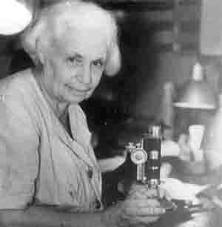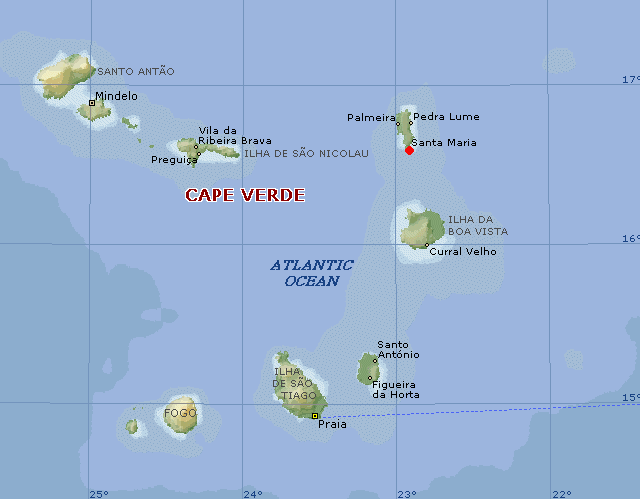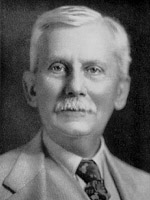Cape Verde Islands
Klenova, M.V. (t)
 Maria Vasilyevna Klenova (1898-1976) was another Russian marine geologist cited by Zhirov as expressing the view, in 1948, that Atlantis had been located on a huge continental block in the region of the Azores, Canary and Cape Verde Islands.
Maria Vasilyevna Klenova (1898-1976) was another Russian marine geologist cited by Zhirov as expressing the view, in 1948, that Atlantis had been located on a huge continental block in the region of the Azores, Canary and Cape Verde Islands.
Lohle, Georg
Georg Lohle is a German researcher, but unfortunately, he has had his book, Die Weltgeschichte – Der wahre Ursprung[446], only published in German. However, Lohle’s website(a) has a considerable amount of its content in English. There are a number of excerpts from his book, in German, that can be read online(c).
His book has chapter two focused on Atlantis, in which he relies heavily on the controversial Oera Linda Book and not surprisingly leads Lohle to believe that its location was in the middle of the North Sea.
Lohle is also a keen exponent of the ‘Expanding Earth Hypothesis’ and he has compounded his nonconformist views with his acceptance of the old theory of a ‘hollow’ Earth.
The prominent Australian geologist Dr. James Maxlow is also a supporter of the idea of an expanding Earth and estimates that it is currently doing so at a rate of 22mm per year. A more technical explanation of the theory, in English, can be found elsewhere on the Internet(b).
A report in early 2007 added a further confusing element to the subject when it was announced by Dr. Chris MacLeod, of Cardiff University, that the earth’s crust appeared to be completely missing in an area thousands of kilometres across in the Atlantic between Cape Verde Islands and the Caribbean on the Mid-Atlantic Ridge.
(a) See: https://web.archive.org/web/20160731211043/https://www.vanaheim.de
(b) See: https://web.archive.org/web/20180307141731/https://www.grisda.org/origins/15053.htm
(c) https://www.hohle-erde.de/?s=Georg+Lohle
Cape Verde Islands (M)
The Cape Verde Islands are located on the continental shelf off the west coast of Africa and are a popular location for Europeans wishing to buy property in the sun. They would have been more extensive in area when the ocean levels were lower during the last Ice Age . Along with the Canaries, Azores, Madeira and some smaller North Atlantic islands they constitute ‘Macaronesia’.
When they were rediscovered in 1460 they were found to be uninhabited although they were noted as inhabited on earlier maps.  The 1413 map of the Catalan cartographer Mecia de Viladestes, which is thought to be based on Roman sources, shows islands at the same location named as Gades, a name that could be a diminutive of Gorgades or possibly derived from Gaderia one of the kingdoms of the Atlantis empire. In the 16th century the Cape Verde Islands were also shown with the alternative name of Dorcades, on the 1563 map of the Portuguese historian Antonio Galvao, which may just have been a corruption of Gorgades. A few years later in 1587 a map by the English geographer Richard Haklyut again applies the name Gorgades to the Cape Verde Islands. The identification of the Gorgades with the Cape Verde Islands is strongly defended by modern writers such as Andrew Collins.
The 1413 map of the Catalan cartographer Mecia de Viladestes, which is thought to be based on Roman sources, shows islands at the same location named as Gades, a name that could be a diminutive of Gorgades or possibly derived from Gaderia one of the kingdoms of the Atlantis empire. In the 16th century the Cape Verde Islands were also shown with the alternative name of Dorcades, on the 1563 map of the Portuguese historian Antonio Galvao, which may just have been a corruption of Gorgades. A few years later in 1587 a map by the English geographer Richard Haklyut again applies the name Gorgades to the Cape Verde Islands. The identification of the Gorgades with the Cape Verde Islands is strongly defended by modern writers such as Andrew Collins.
Although there is little support for identifying the Cape Verde Islands as Atlantis itself, there is willingness by some to see them as remnants of its empire. Without more clear-cut classical references and/or archaeological evidence, it would be unwise to put too much value on any Atlantean link with the archipelago.
Thomas K. Dietrich speculated[217, p70] that the Prime Meridian of ancient civilisations was centred on the Cape Verde Islands.
In 1949, Capt. H.P.C. Andersen, who worked for a Danish salvage company, wrote a very brief letter to Egerton Sykes‘ Atlantis Research journal with the self-explanatory title of Atlantean Traces in the Cape Verde Islands(a). In it, he recounts coming across a harbour in Boavista Island, the bottom of which was completely covered in sheets of concrete about a yard square, reminiscent of a market place.
A short YouTube clip(b) purporting to offer evidence for Atlantis at Cape Verde is available. It is based on Google Earth images, but is far from convincing.
(a) Atlantis Research (1949. 2.1. p13)
(b) https://www.youtube.com/watch?v=YDE__VnJvBA
Schuchert, Charles
Charles Schuchert (1858-1942) was an outstanding American paleographer and palaeontologist and recipient of many  professional honours at home and abroad(a). In a paper entitled Atlantis and the Permanency of the North Atlantic Ocean Bottom delivered to the National Academy of Sciences in 1917(b), Schuchert concluded ‘that there was no known geologic data that prove or even help to prove the existence of Plato’s Atlantis in historic times’. He also noted ‘that the Azores are volcanic islands and are not composed of rocks seen on the continent’ and accepted the conclusions of the German geologist Curt Gagel(d) that five of the Cape Verde Islands and three of the Canaries are ‘unmistakably’ continental.
professional honours at home and abroad(a). In a paper entitled Atlantis and the Permanency of the North Atlantic Ocean Bottom delivered to the National Academy of Sciences in 1917(b), Schuchert concluded ‘that there was no known geologic data that prove or even help to prove the existence of Plato’s Atlantis in historic times’. He also noted ‘that the Azores are volcanic islands and are not composed of rocks seen on the continent’ and accepted the conclusions of the German geologist Curt Gagel(d) that five of the Cape Verde Islands and three of the Canaries are ‘unmistakably’ continental.
He also expressed similar views in a critique of Pierre Termier’s theory of Atlantis in the Atlantic in a paper published in the American Geographical Society’s Geographical Review of January 1917. The same review contained a similar response from Dr. Rudolph Schuller, a specialist in historical geography.
>(a) https://siarchives.si.edu/collections/siris_arc_217390<
(b) https://www.pnas.org/content/3/2/65.full.pdf+html
(c) https://www.jstor.org/stable/207366
(d)https://atlantisforschung.de/index.php?title=Curt_Gagel (German)
Fortunate Isles (L)
Fortunate Isles or Isles of the Blest is a term that has been applied to many islands over the ages but has been consistently described as being ‘in the west’. It is most commonly believed that the term was originally used to describe the Canary Islands, which in turn are considered by many to be remnants of Atlantis.
Marinus of Tyre, writing around 120 AD wrote of the Fortunate Isles as the western boundary of the known world and he was followed by Claudius Ptolemy (90-168 AD) who used the Fortunate Islands as the prime meridian for his Geographia(a) . However, although there is a general acceptance that the Canaries should be considered the Fortunate Isles, Ptolemy’s prime meridian runs more closely to the Cape Verde Islands!
Peter de Roo identifies Madeira and the Canaries as the Fortunate Islands in a map in his 1900 book History of America before Columbus[0890]..
Macaronesia which is derived from the Greek meaning ‘islands of the fortunate’ is a modern geographical term used to collectively describe the islands of Madeira, Azores, Canaries, Cape Verde and the Savage Islands. The term ‘Fortunate Isles’ is also applied to the Scilly Isles off the coast of Cornwall.
See: Hesperides, Eugene Pégot-Ogier
Magoffin, Ralph van Deman
Ralph van Deman Magoffin (1874-1942) was the nephew of Esther Boise Van Deman (1862–1937), a  leading archaeologist of the late 19th and early 20th centuries.
leading archaeologist of the late 19th and early 20th centuries.
In his own right, Magoffin was a professor of classical archaeology at John Hopkins University in Baltimore, Maryland and was also honorary president of the Archaeological Institute of America.
He is credited by Hatcher Childress[620.101] as having been a supporter of Crete as the location of Atlantis, in his 1929 book, The Romance of Archaeology [1383]+. This idea was very much in vogue in the early decades of the 20th century. In fact, the following year Magoffin expanded on his views in his Lure and Lore of Archaeology [1384.34]+ when he wrote that Atlantis was “first probably a traditionalized Crete, and then successively Sicily and one of the Cape Verde islands, as discovery compelled Atlantis to recede westward ahead of geographical certainty.”
[1383] Read online: https://archive.org/details/romanceofarchaeo00mago *
[1384] https://babel.hathitrust.org/cgi/pt?id=uc1.b3143453;view=1up;seq=1 *
